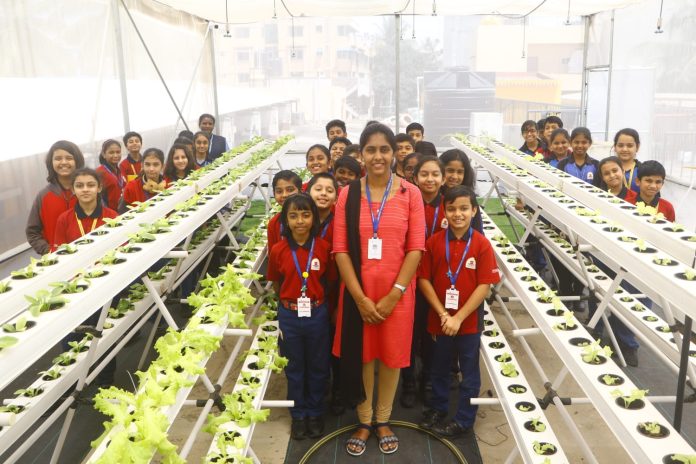Bengaluru: Orchids – The International School (OIS) is the leading K12 school chain in India with 60+ branches in major cities like Mumbai, Bengaluru, Hyderabad, Chennai, Indore, Pune, Gurgaon, Kolkata, and Aurangabad. The school is a pioneer in introducing new age subjects in the curriculum. Recently Orchids has introduced horticulture curriculum for all branches from Grade 1 to 8. Adhering to National Education Policy – 2022, OIS is the first school chain ever to introduce Horticulture as a subject in the regular curriculum.
Horticulture Curriculum at Orchids – The International School is called “Little Green Fingers”. Polyhouse is installed on the campus. The objective of introducing this curriculum is to in still the students to be rooted in nature and develop a sense of sustenance and conservation among the students.
Reasons behind introducing it as a subject are listed below:
Encourage healthy eating: Horticulture in schools encourages students to grow edible fruits and vegetables in their home garden, which would influence them to revise attitudes toward their diet.
Environmental appreciation: School horticulture can inspire environmental stewardship by deepening children’s sense of connection with nature. Gardening can also offer insights into the long-term human impact on the natural environment.
Provide unique experience: The classes allow for surprises to arise, for example, when plants are afflicted with fungus, how the weather and seasons can impact the growth of different crops and how different insects are enticed by different plants.
New things taught in horticulture:
Polyhouse:
A polyhouse is a specially constructed structure like a building for growing plants under controlled climate conditions.
Hydroponics
Hydroponics is the cultivation of plants without using soil. The students are taught to grow hydroponic flowers, herbs, and vegetables by supplying nutrient-rich solutions, oxygen, and water. This system enables rapid growth, more substantial yields, and superior quality.
Plant Propagation
The students are educated on various types of plant propagation including Sexual and asexual plant propagation.
Cutting skills -which is again divided into three parts- stem cutting, leaf-cutting and root cutting, Division, layering, grafting, budding, and tissue culture.
Plant Nutrition and Protection
The students will learn about nurturing plants and their growing conditions. They will be exposed to nutrition supply procedures and how to boost the plant’s growth.
Edible Gardening
Urban Edible Gardening methods will be taught to students.
Practical Approach
The horticulture curriculum includes theory and practical classes. Students are encouraged to take part in plant growth activities and are exposed to high-tech agricultural technologies. This will enable students to identify different types of plants like herbs, shrubs, medicinal plants, taproot, and fibrous root plants.
Impact of horticulture on students:
- Connects the kids with nature
- Develops immunity in kids
- Sustainability
- Value of Food
- Own food production
- Benefits the environment
- Reduces the Carbon footprint
- Developing agripreneurship in kids
































